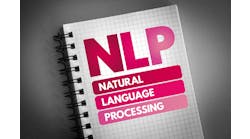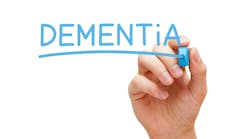Atlanta-based Emory Healthcare has signed an enterprise-wide agreement with generative artificial intelligence company Abridge to make Abridge’s Epic-integrated solution for note-taking available to Emory clinicians over the next three years. In an interview with Healthcare Innovation, Alistair Erskine, M.D., M.B.A., Emory’s chief information and digital officer, explained the significance of the deal and the strategic roadmap he’s developed since joining Emory in March 2023.
Previously chief digital health officer at Mass General Brigham in Boston, Erskine now leads digital strategy at Emory Healthcare, with nearly 24,000 employees and 11 hospitals.
Abridge says that providers who use its solution save two hours per day on average and that deep integration into their Epic workflows will create additional time-saving opportunities. The company says its technology and Epic workflow integrations are already being used at several health systems, including the University of Kansas Health System and UPMC.
HCI: You've been in your new position for about six months. Did you do an assessment of the digital health landscape there at Emory and do some listening in order to decide on some priority items you want to work on?
Erskine: Absolutely. That was definitely what filled most of my calendar in the first few months. And I continue to do that. In fact, every Monday and Friday I go and round somewhere in the organization and bring my team along virtually. We go to every nook and cranny of the organization and just learn directly from anything ranging from the warehouse to the pharmacy to the ICU to drug discovery. That's a great way for me to continue learning as I go along. But the very first set involved more comprehensive and more rapid meetings with a number of different leaders across the organization. That's what helped me come up come up with the strategy that I went to the board with.
HCI: Is EHR usability and reducing clinician administrative burden high on the list? I noticed you announced a deal with a company called Experis Health Solutions earlier this year to support Epic EHR usability. And now you’ve announced this deal with Abridge to help clinicians spend less time in the EHR and more time with their patients.
Erskine: In terms of what we want to work on involving care team experience, ambient listening is on that list as well as inbox management. These are things to relieve some of the burden that sits on providers and causes pajama time. I'm jumping on ambient listening because I think that's probably the most transformational thing that I can do in practice. Building an informatics team is also important in terms of adapting the brand new Epic system into the Emory system.
HCI: Is Epic relatively new at Emory?
Erskine: It is only 10 months old. Emory was a Cerner shop for over two decades, and it was late to switch to Epic. And it did so — and this is fascinating —in two years, which is actually quite fast from signature to go-live. And it did so without using a systems integrator. It also decided to implement almost every module that Epic has. It was a big effort, and I think it suffered from a few post-implementation stabilization issues, where you had to catch up on the revenue cycle side and the intuitiveness of the system. But now I think we're in a position where we're able to add new functionality and do new things.
HCI: How did you hear about the Abridge solution? Did you see it in action elsewhere or see it in an Epic user group meeting?
Erskine: I learned about Abridge two years ago, when I was at Mass General Brigham. At the time, I was working with Nuance’s DAX [Dragon Ambient Experience]. It is one of the pioneers in the field. It has done so much work with Dragon NaturallySpeaking, and they were so embedded into clinical workflow with PowerScribe, and the company had just been bought by Microsoft. So it made all the sense in the world to go there. The thing that I learned with DAX is that it is training the algorithm specialty by specialty, and it means to do it that way. What I was surprised about with Abridge, and what kind of piqued my curiosity, is that its technology is across the board. I don't need to wait until it tells me ‘Okay, we're good for cardiologists now.’ Right now I have 20 doctors using it, and it's across all different specialties and I'm getting the same positive feedback from all of them.
The most important piece of this is that we want to go at scale quickly. And I would argue that most of the rest of the team needs ambient listening, too, including the nurses. If you can make the nurses’ experience better by allowing him or her to have a conversation with the patient at the bedside when they get admitted, that's going to help us have enough nurses taking care of the patients. It also helps not having to pay hundreds of millions of dollars of extra premium labor charges when you can't get enough nurses. So you help the financial health of the organization as well. And then there are care managers, social workers, students, residents — there are so many other people who can actually take advantage of this technology.
HCI: Is it important to you to have an enterprise-wide license for Abridge?
Erskine: Yes. Otherwise, I don’t think you’ll see the speed of scale to understand what is the right place to focus innovation efforts. If I sit there and premeditate the people who are going to need it the most, I’m going to be wrong. Somebody who hadn’t even thought about it is going to use this in a way they haven’t even imagined yet. By setting up the contract as an enterprise contract for a tool that can go across specialties, it’s going to find the right place to innovate. We started with 15 specialties, and I heard from the palliative care doctors. In palliative care medicine, you’re helping somebody in the dying process or dealing with pain. To the doctor, part of that burnout is writing a note late at night ’and having to relive that experience every single time they write that note. Now they are using Abridge and they’re experiencing relief of having the tool summarize and deduce what was being said, instead of having them having to take notes and remember. I would have never imagined that would have been the case. But by virtue of the fact that we opened this up to specialties, we are finding sources of innovation.
HCI: Do you think that other solutions in this space will struggle to get acceptance if they don’t have that tight EHR integration?
Erskine: It's a guarantee. No matter how wonderful something might be, you have to stay in the workflow for adoption reasons, but also for security and safety reasons. You may copy and paste the wrong thing if you're doing 30 a day. You want this process to be completely automatic. There's a patient safety aspect and a patient privacy aspect of it. And if you're outside of a workflow, people will just say they don't want to hassle with it.
HCI: Getting back to the beginning of our conversation, you mentioned that these issues of EHR usability and ambient listening were high priorities, but how do you prioritize the rest of the digital health issues you want to work on?
Erskine: We created a roadmap over three years in a certain order, because some things are dependent upon others. I want to do some clever things with data, but I need the data infrastructure first. I want to do some automation with bots, so we need to put in the bot and software and get people trained up on how to use it. The analysis on when to do things includes asking: how ready is the organization for the technology? How mature is the technology for the use case? How interested are the users in gaining access to that technology? If it's something that is a shiny object that excites all the nerds out there, but the doctors are not really interested in it, I'm not going to put that forward. One good example is tap and go. You take your badge and you tap it to log in. Emory has not rolled that out yet. I'm doing that immediately, because I know from previous experience that everybody loves it. It's easy to do. Other things are much more complex. In terms of home-based care, it is going to take a lot of logistics so that is in the out years. But it's still on the list.


